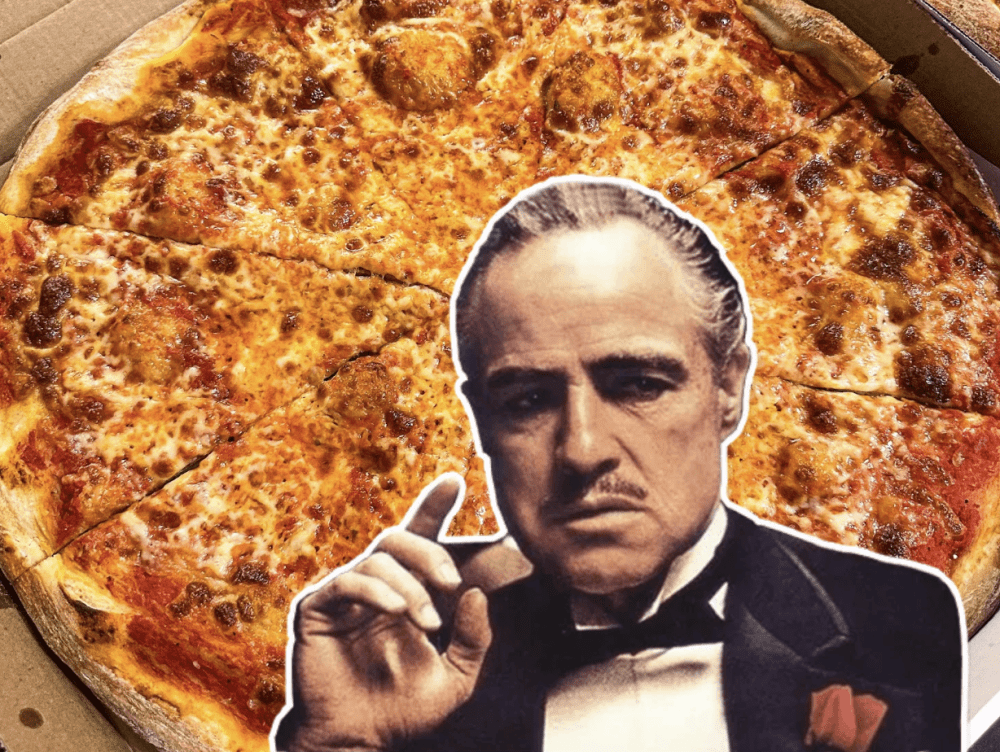Today, the most popular cheese used for pizza across New York and New Jersey is Grande Cheese, a low-moisture mozzarella that has impeccable melting capabilities and a distinct, cheesy flavor. The cheese—based out of Fond du Lac, Wisconsin—is considered by many pizza enthusiasts to be the gold standard of pizza cheese. And while it’s nice to assume that Grande’s rise to fame was strictly due to its high quality, the actual story of how Grande came to be the apex of pizza cheese is much more cynical.
This is how the Italian Mafia influenced the pizzeria landscape of NYC, NJ, Chicago, Pennsylvania and beyond. An influence so powerful that it is still seen today.
Millions of Italian immigrants came to the US in the early 1900s and with their arrival came an influx of what would come to be one of the most iconic foods of all time: Pizza. Dozens of different pizza styles began to emerge and the food quickly became a staple of the area.
Pizza wasn’t the only thing Italians brought with them, a faction of the immigrants also came to the US with more nefarious acts on their mind. The organized, clan-based crime of Sicily began to spread its influence across the pond and eventually, Cosa Nostra—better known as the Italian Mafia—was fully operative in the United States.
Because pizza and Italians were so interwoven, pizza shops were often used as Mafia fronts for drug operations and other forms of organized crime. This was especially popular during the 70’s and early 80’s before the US Government was able to establish a distinguished connection between Sicilian-processed heroin and the NYC Mafia.
Pizza crime actually began way before the dope, though, when cheese came into play sometime in the 1930’s. Infamous Mafioso Al Capone made his way into the dairy industry when Prohibition came into effect. The mobster took control of several Wisconsin farms and cheese producers and would use his intimidation tactics to force the hands of pizzerias 800 miles away in Manhattan and Brooklyn to purchase his cheese. Because the East Coast had a high density of Neapolitan immigrants, fresh mozzarella was often employed for pizza, but Capone pitched his Wisconsin-made cheese as a better-melting alternative. So, he made an offer they couldn’t refuse, and low-moisture mozzarella became the norm in NYC slice shops.
Capone’s involvement with dairy wasn’t all sinful, though. It is generally believed that milk having expiration dates clearly printed on the bottle is thanks to his revolutionizing of the industry. Whether Capone did it for self-serving reasons or out of the kindness of his heart is still debated today. In any event, dairy as a whole changed when Capone made his way into the game.
Also in the 30’s, Grande Cheese was formed in the wake of a Chicago gang war. Numerous men involved with Grande were killed before Chicago crime boss Ross Prio eventually took control. Grande’s facilities were located just a stone’s throw from many of Capone’s dairy operations. Eventually, NYC Mobster Joseph Bonanno Sr., head of the infamous Bonanno Crime Family, became a part owner of the company. This was a turning point.
Bonanno soldiers began traveling around the city to pitch Grande Cheese and other specialty cheeses that he had his hands in. As was customary to mob activity at the time, the pitches often came in the form of threats. Bonanno also controlled distributors in the area, including New Jersey’s own Roma Foods in South Plainfield, which became the main pizza shop distributor in PA, NJ and NY. Roma Foods would even loan money to start-up pizzerias, creating a bond that the pizzeria could never break.
These distributors would call up pizza shops in NJ and NYC and say something along the lines of “If your current cheese distributor gives you problems, we’re here.” Next thing you know, a distribution plant would erupt in flames, or shut down for other reasons, and the shops who used it would quickly turn to Bonanno’s ever-so-convenient solution.
Grande began to spread its product utilizing these mysterious tactics. This was carefully organized crime, though, and it took until the 1980s for the law to catch up. In March 1980, following a lengthy two-year investigation, the Pennsylvania Crime Commission released a report titled “A Report of the Study of Organized Crime’s Infiltration of the Pizza and Cheese Industry.” Grande Cheese was named numerous times in the report and though it covered Pennsylvania, the shoe fit for Grande’s meteoric rise across Italian-American hubs in the US. The clock on the cheese game was running out. The report in its entirety can be read here.
The Mafia, as a whole, popularized low-moisture mozzarella as the superior pizza cheese in general during this time. The funny part about it is that although their motives for doing so were entirely cemented in self-interest, they weren’t lying when it came to the quality of these products. Grande and other low-moisture mozzarellas are still preferred when it comes to slice pizza—the most iconic style of pizza found in New Jersey and New York. Grande Cheese, especially, is still praised today by many pizza enthusiasts.
It’s safe to say that without the Italian-American Mafia, pizza might look a lot different today. So, next time you’re enjoying a slice of NJ/NY pizza, take a moment to thank Al Capone or Joe Bonnano Sr. for that flavorful, melty cheese.
Grande Cheese has no affiliation with organized crime today.
Peter Candia is the Food + Drink Editor at New Jersey Digest. A graduate of The Culinary Institute of America, Peter found a passion for writing midway through school and never looked back. He is a former line cook, server and bartender at top-rated restaurants in the tri-state area. In addition to food, Peter enjoys politics, music, sports and anything New Jersey.
- Peter Candiahttps://thedigestonline.com/author/petercandia/
- Peter Candiahttps://thedigestonline.com/author/petercandia/
- Peter Candiahttps://thedigestonline.com/author/petercandia/
- Peter Candiahttps://thedigestonline.com/author/petercandia/



